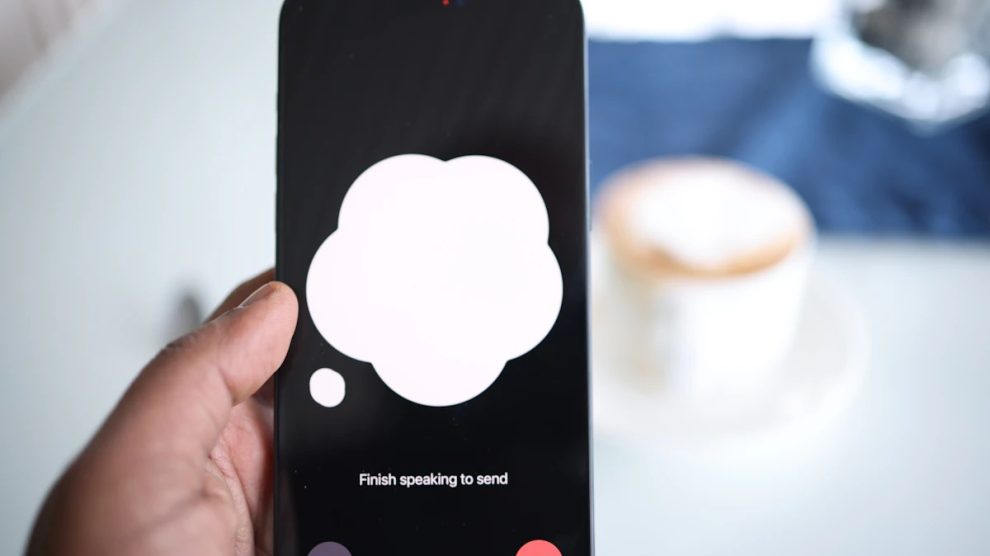Google continues to redefine the boundaries of artificial intelligence, pushing forward with advancements that aim to set new standards for machine learning capabilities. In the latest development, the tech giant is reportedly collaborating with Anthropic, a company known for its AI assistant Claude, to integrate its functionalities into the evolution of Gemini AI. The decision to leverage Claude’s technology marks a pivotal moment in Google’s journey to cement its leadership in artificial intelligence. As competition in the AI industry intensifies, every strategic move becomes crucial, and this partnership is no exception.
The Gemini AI project is a cornerstone of Google’s artificial intelligence ambitions, promising a generational leap in performance and adaptability. Introduced as an answer to OpenAI’s GPT models, Gemini is designed to excel in a variety of tasks, from language understanding to creative problem-solving. The collaboration with Anthropic introduces Claude’s capabilities as a way to accelerate Gemini’s development while addressing the increasing complexity of modern AI systems.

Claude, Anthropic’s flagship AI, has gained recognition for its ability to handle nuanced queries, maintain coherent conversations, and prioritize user safety. These attributes align with Google’s vision for Gemini, which seeks to blend raw computational power with user-focused design. By tapping into Claude’s conversational expertise, Google aims to refine Gemini’s performance in real-world applications, enhancing its ability to respond accurately and efficiently.
While Google has not officially confirmed the collaboration, industry insiders have pointed to multiple indicators that suggest the partnership is already yielding results. Claude’s influence is believed to be instrumental in training Gemini’s models, which are being tailored to perform seamlessly across diverse platforms and industries. This development underscores Google’s focus on scalability and adaptability, ensuring Gemini remains relevant in a rapidly evolving market.
The decision to collaborate with Anthropic is a calculated one. Anthropic has positioned itself as a company dedicated to ethical AI, emphasizing safety and alignment with user values. This approach resonates with Google’s ongoing efforts to address criticisms about potential misuse and ethical concerns surrounding artificial intelligence. By integrating Claude’s safety-first principles into Gemini, Google is not only enhancing the product but also reinforcing its commitment to responsible AI development.
Gemini’s progress is being closely watched by competitors and analysts alike. The AI landscape is marked by fierce rivalry, with companies like OpenAI, Microsoft, and Meta racing to achieve breakthroughs. Each organization is vying to create models that can outperform their peers in speed, accuracy, and application breadth. Google’s decision to incorporate Claude into its development process is seen as a strategic move to stay ahead of the curve. By pooling expertise from two innovative teams, Gemini is expected to emerge as a formidable competitor in the AI ecosystem.
The collaboration highlights the growing trend of cross-company partnerships in the AI sector. As the complexity of AI development increases, no single entity can dominate the field without leveraging external expertise. Companies are recognizing the value of pooling resources and knowledge to tackle shared challenges, from improving model accuracy to addressing ethical concerns. Google and Anthropic’s collaboration could serve as a blueprint for similar alliances in the future, setting a precedent for cooperation in an industry often marked by fierce competition.
One of the most significant advantages Claude brings to Gemini is its ability to navigate complex, multi-turn conversations with ease. This skill is essential for next-generation AI systems that aim to function as reliable assistants in both professional and personal settings. By integrating this capability, Gemini could redefine user expectations, offering a level of interaction that feels more natural and intuitive. This potential improvement has broad implications, from enhancing customer service to revolutionizing content creation.
At the core of this development lies the challenge of data integration. For Gemini to benefit fully from Claude’s capabilities, Google must harmonize their respective architectures. This involves extensive data training, optimization of machine learning algorithms, and rigorous testing to ensure seamless compatibility. The process is resource-intensive but crucial for achieving the high standards Google has set for its AI products. Analysts suggest that the integration is progressing smoothly, with initial tests indicating a marked improvement in Gemini’s conversational abilities.
As Google and Anthropic work together, the implications for the broader AI community are profound. The integration of Claude’s safety features could set a new benchmark for ethical AI development, prompting other companies to prioritize similar standards. This shift could lead to more transparent, user-friendly AI systems that prioritize security and reliability over pure computational prowess. The partnership also underscores the importance of collaboration in addressing the growing challenges associated with AI, such as bias mitigation and data privacy.
The competition to dominate the AI market is driving innovation at an unprecedented pace. Google’s partnership with Anthropic positions Gemini as a strong contender against leading AI models, including OpenAI’s GPT-4 and Meta’s Llama 2. The outcome of this collaboration will likely influence the direction of the industry, shaping how AI is developed, deployed, and perceived in the coming years. For Google, the stakes are high, but the potential rewards are even higher.
The integration of Claude’s capabilities into Gemini also raises questions about the future role of AI assistants. With advancements in conversational AI, these systems are poised to take on more complex tasks, from decision-making to creative endeavors. This evolution will likely redefine their relationship with users, transitioning from simple tools to indispensable collaborators. Gemini’s development represents a significant step toward this vision, offering a glimpse into the future of AI-powered interaction.
The collaboration between Google and Anthropic is not just a technical partnership; it’s a strategic maneuver that reflects the shifting dynamics of the AI industry. By leveraging Claude’s strengths, Google is not only enhancing Gemini’s capabilities but also positioning itself as a leader in ethical, user-centric AI. As details about this collaboration continue to emerge, one thing is clear: the race to shape the future of artificial intelligence is far from over, and Google is determined to lead the way.










Add Comment